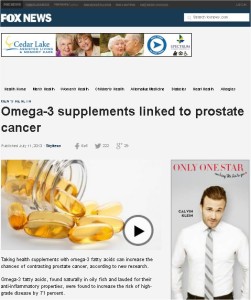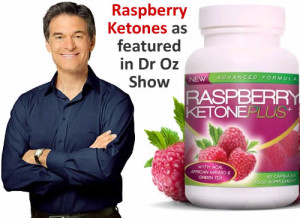Not a day goes by without some fad diet or exercise protocol appearing in your local newspaper, favorite magazine, or late-night television programming. Amazingly, regardless of how ridiculous this new gimmick may seem, it is only a matter of time before you encounter a friend, family member, or colleague that swears it has changed his or her life. Why is it that no matter how ineffective and absurd an idea may be, it will undoubtedly gain a massive following?
The reality is that our brains are optimized for identifying poisonous berries, avoiding dangerous predators, and recognizing desirable mates. Unfortunately, the cognitive processes that kept our ancient ancestors alive thousands of years ago are the same biases that can make it difficult to form rational, coherent beliefs about complex topics (1). By understanding the cognitive biases that impair logical thinking, however, we can greatly elevate our capacity to discern between those ideas that can improve our health and those that will do nothing but deplete our bank accounts.
Selective Exposure
You’re sitting at the kitchen table, preparing to consume your morning dose of omega-3 supplements, when your wife abruptly smacks the bottle out of your hand. “Whoa! Haven’t you heard? Fish oil supplements cause prostate cancer!” she shrieks. Rather than rush to the emergency room and have your prostate examined, you should consider that your wife may be a victim of selective exposure.
Selective exposure is the likelihood that we will be overexposed to evidence that supports one belief while being underexposed to evidence that suggests the contrary (2, 3). Because most people are only informed of one side of a debate, they are constantly forced to base their beliefs off of a dramatically skewed subset of data.
In your case, your wife may have read one of the many news stories that reported a link between fish oil and prostate cancer (4,5). Unfortunately, she is completely unaware of the eight higher-quality studies that have found that fish or omega-3 supplements can decrease one’s risk of prostate cancer (6-13). Because the news journalists chose to present information on only one side of the topic in order to create a more sensationalist story, your wife formed her beliefs without being aware of all of the available evidence.
Confirmation Bias, Confounding Factors, and the Placebo Effect
You meet your friend at the gym for the first time in months, and he has something amazing to share with you: a new supplement, made from an exotic Amazonian fruit, which has completely turned his life around. “Ever since I started taking this new supplement, I’ve lost weight, experienced better workouts, and have endured considerably less pain in my back! This thing has changed my life!” he proudly exclaims. Rather than book a flight to the Amazon in hopes of harvesting your own magical pill, you should consider that there are a multitude of biases that may explain your friend’s miraculous findings.
One possibility is that your friend is succumbing to confirmation bias. Confirmation bias refers to our increased likelihood to remember evidence that confirms our beliefs, while forgetting facts that refute them (14-17). In one study, participants briefly received a horoscope that they were told was from a professional astrologer. Unbeknownst to the subjects, every participant received the same horoscope. Amazingly, when questioned later, 84% of subjects believed that the horoscope had described them too accurately to have been due to random chance. When asked to recall statements from the horoscope, subjects remembered the few statements that were accurate, while forgetting the majority of those that were false (14).
Although your friend may have enjoyed a few great workouts since he started consuming the supplement, he likely had many that were no better than average. Due to confirmation bias, however, it is the few great workouts that stand out in his mind. In his head, the supplement is working at an exceptionally high frequency, while in reality, his few great workouts could easily be attributed to random chance.
Another bias that is likely affecting your friend’s judgment is the presence of confounding factors. If your friend has been exercising, eating healthily, and taking this supplement, there is no way to discern which of those factors is actually responsible for his weight loss. It’s possible that the supplement may be having at least a small effect, but it’s equally likely that he would have lost exactly the same amount of weight without the pill due to his diet and exercise habits. In addition, he is also being affected by factors that are outside of his control, such as changes in stress or the weather, which may be influencing his results more than the actual supplement.
Additionally, there is little doubt that your friend is experiencing a placebo effect. The placebo effect is the phenomenon in which the mere act of believing in a treatment can literally cause the treatment to work (18-27). In one study, subjects were placed in an fMRI machine and administered electric shocks. Not surprisingly, these subjects showed activation in areas of the brain responsible for pain. Next, half the patients were administered a hand moisturizer, which they were told was an analgesic cream that would help the pain subside. After the cream was applied, the areas of the brain responsible for pain were significantly inhibited, causing the subjects to report a dramatic decline in pain (18).
In your case, your friend’s decline in back pain is likely due to this placebo effect. Rather than relying on a placebo pill, however, you will enjoy superior results by utilizing an evidence-based treatment, which can provide just as much of a placebo effect as long as you believe it will work.
Cognitive Dissonance
You run into a colleague during your lunch break, and he is proud to tell you that he has completely changed his life by adhering to a very low-carbohydrate diet. Remembering a few studies you read about in the news, you inform him that low-carbohydrate diets can lead to dramatic declines in mental acuity and physical performance. “Oh, I’m sure the authors of those studies must have been biased. Or maybe the sample size was too small, or the population tested wasn’t applicable to me” he states, failing to even consider the possibility that there may have been some truth to the studies.
The next day, you run into your colleague again, and he has excellent news: new studies have shown that low-carbohydrate diets are optimal for weight loss! You take a look at the studies, and you notice that the sample size was small, the population tested was severely obese, and the authors were low-carbohydrate advocates who have profited off of selling Paleo diet books. Why did your coworker embrace these studies, yet refuse to consider the validity of studies that didn’t support low-carbohydrate diets?
The answer is that your colleague is a victim of cognitive dissonance. Cognitive dissonance is an innate tendency to selectively reinterpret evidence to support preconceived notions (28-31). In one experiment, subjects with a strong opinion on the death penalty were shown studies that either supported or refuted the theory that capital punishment deters crime. Unbeknownst to the subjects, all of the studies were fictional, and were intentionally designed to either be perfectly valid or egregiously flawed. When asked to rate the quality of the studies, however, subjects were willing to overlook the flaws in the studies that supported what they believed and ultimately rated these studies to be high-quality. Conversely, they often found imaginary flaws in the studies that refuted their beliefs, despite the fact that the studies were designed to be perfectly valid. By the end of the experiment, not a single subject had changed their mind on the topic, and most of them felt even more strongly that they had been right all along (28).
In your case, your friend is behaving in the same manner. His cognitive dissonance is causing him to find flaws in valid studies and overlook potential drawbacks of low-carb research in order to convince himself that his beliefs are accurate.
Conclusion
Unfortunately, critical thinking is a challenging skill that requires studying and practice in order to master, and those who lack this skill will be innately drawn towards many of the scams that have become commonplace in the fitness industry. By learning to recognize the most common biases that appear in everyday life, however, we can dramatically elevate our capacity to understand the world around us and make better decisions that will improve our health and well-being.
References
1 Shermer M. Why people believe weird things: pseudoscience, superstition, and other confusions of our time. Holt Paperbacks. 2002.
2 Frey D. Recent research on selective exposure. Advances in Experimental Social Psychology. 1986; 19: 41-80.
3 Sears DO, Freedman JL. Selective exposure to information: a critical review. Public Opinion Quarterly. 1967; 31: 194-213.
4 Bowden J. Media madness: fish oil supplements cause prostate cancer. Huffington Post. 2013 Jul; Retrieved from http://www.huffingtonpost.com/dr-jonny-bowden/fish-oil-prostate-cancer_b_3601906.html
5 Bongiorno P. Do fish and fish oils cause prostate cancer? Psychology Today. 2013 Aug; Retrieved from http://www.psychologytoday.com/blog/inner-source/201308/do-fish-and-fish-oils-cause-prostate-cancer
6 Szymanski KM, Wheeler DC, Mucci LA. Fish consumption and prostate cancer risk: a review and meta-analysis. The American Journal of Clinical Nutrition. Nov 2010;92(5):1223-1233.
7 Leitzmann MF, et al. Dietary intake of n-3 and n-6 fatty acids and the risk of prostate cancer. The American Journal of Clinical Nutrition. Jul 2004;80(1):204-216.
8 Chavarro JE, et al. A prospective study of polyunsaturated fatty acid levels in blood and prostate cancer risk. Cancer Epidemiology, Biomarkers & Prevention: A Publication of the American Association for Cancer Research, Cosponsored by the American Society of Preventive Oncology. Jul 2007;16(7):1364-1370.
9 Bosire C, et al. Index-based dietary patterns and the risk of prostate cancer in the NIH-AARP diet and health study. American Journal of Epidemiology. Mar 2013;177(6):504-513.
10 Epstein MM, et al. Dietary fatty acid intake and prostate cancer survival in orebro county, sweden. American Journal of Epidemiology. Aug 2012;176(3):240-252.
11 Norrish AE, et al. Prostate cancer risk and consumption of fish oils: a dietary biomarker-based case-control study. British Journal of Cancer. Dec 1999;81(7):1238-1242.
12 Yang YJ, et al. Comparison of fatty acid profiles in the serum of patients with prostate cancer and benign prostatic hyperplasia. Clinical Biochemistry. Aug 1999;32(6):405-409.
13 Augustsson K, et al. A prospective study of intake of fish and marine fatty acids and prostate cancer. Cancer Epidemiology, Biomarkers & Prevention: A Publication of the American Association for Cancer Research, Cosponsored by the American Society of Preventive Oncology. Jan 2003;12(1):64-67.
14 Forer BR. The fallacy of personal validation: a classroom demonstration of gullibility. Journal of Abnormal and Social Psychology. 1949; 44(1): 118-123.
15 Snyder M, Cantor N. Testing hypotheses about other people: the use of historical knowledge. Journal of Experimental Social Psychology. 1979; 15: 330-342.
16 Kunda Z. The case for motivated reasoning. Psychological Bulletin. 1990; 108(3): 480-498.
17 Jones E, Kohler R. The effects of plausibility on the learning of controversial statements. Journal of Abnormal and Social Psychology. 1959; 57: 315-320.
18 Wager, et al. Placebo-induced changes in fmri in the anticipation and experience of pain. Science. 2004; 303: 1162-66.
19 Wolf S. Effects of suggestion and conditioning on the action of chemical agents in human subjects-the pharmacology of placebos. Journal of Clinical Investigation. 1950; 29:100-109.
20 Luparello TJ, et al. The interaction of psychological stimuli and pharmacologic agents on airway reactivity in asthmatic subjects. Psychosomatic Medicine. 1970; 32:509-513.
21 Ikemi Y, Nakagawa S. A psychosomatic study of contagious dermatitis. Kyoshu Journal of Medical Science. 1962; 15:335-350.
22 Moseley JB, et al. Arthroscopic treatment of osteoarthritis of the knee: a prospective, randomized, placebo-controlled trial. American Journal of Sports Medicine. 1996; 24:28-34.
23 Uhlenhuth EH, et al. The symptomatic relief of anxiety with meprobamate, phenobarbital, and placebo. American Journal of Psychiatry. 1959; 115: 905-910.
24 Schapira K, et al. Study of the effects of tablet colour in the treatment of anxiety states. British Medical Journal. 1970; 2: 446-449.
25 Blackwell B, et al. Demonstration to medical students of placebo responses and nondrug factors. The Lancet. 1972; 1: 1279-1282.
26 de Craen AJM, et al. Effect of colour of drugs: systematic review of perceived effect of drugs and of their effectiveness. British Medical Journal. 1996; 313: 1624-1626.
27 Branthwaite A, Cooper P. Analgesic effects of branding in treatment of headaches. British Medical Journal. 1981; 282: 1576-1578.
28 Lord CG, Ross L, Lepper MR. Biased assimilation and attitude polarization: the effects of prior theories on subsequently considered evidence. Journal of Personality and Social Psychology. 1979; 37: 2098-2109.
28 Kuhn D, et al. How well do jurors reason? Competence dimensions of individual variation in a juror reasoning task. Psychological Science. 1994; 5: 289-296.
30 Cohen GL. Party over policy: the dominating impact of group influence on political beliefs. Journal of Personality and Social Psychology. 2003; 85: 808-822.
31 Westen D, et al. The neural basis of motivated reasoning: an fmri study of emotional constraints on political judgment during the u.s. presidential election of 2004. Journal of Cognitive Neuroscience. 2006; 18: 1947-58.


